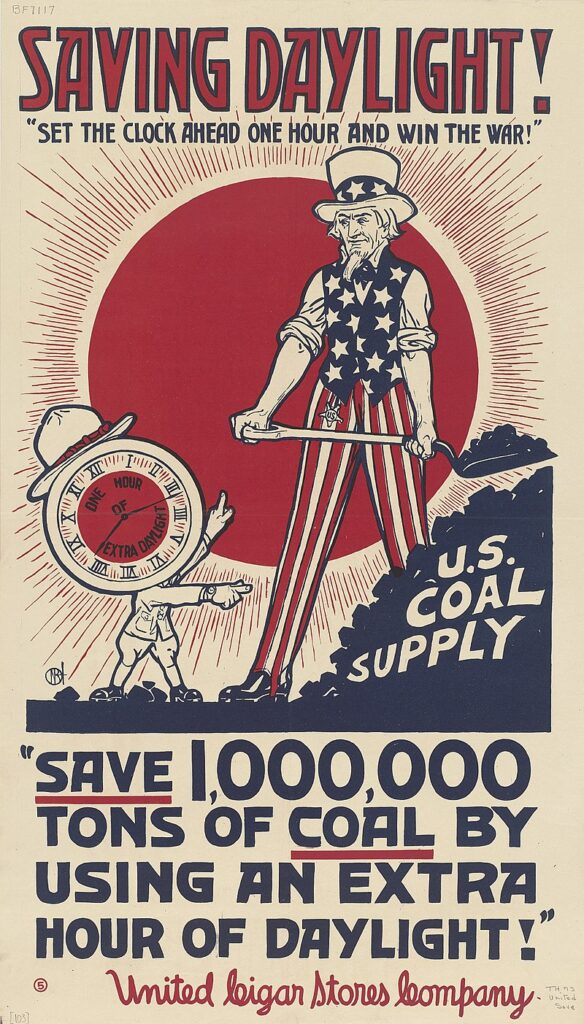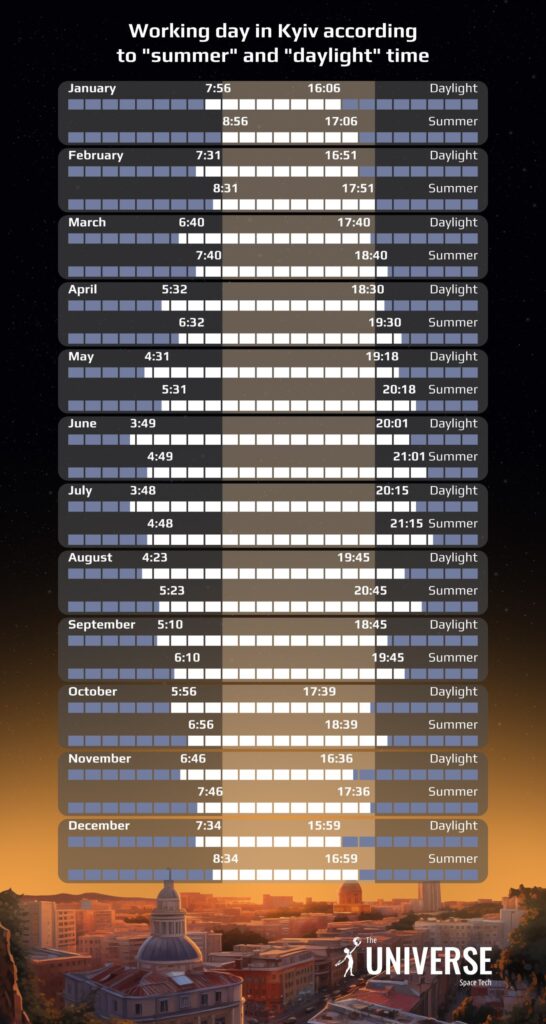On Sunday, October 29, Ukraine set the clock to «winter» time. All clocks should be set back one hour. You will be able to sleep longer. From the point of view of astronomy and biology, everything will return to normal. We remind you why this is done.

Resetting the clocks
On October 29, Ukraine will reset to “winter” time. This is a routine event. According to the law, it takes place every last Sunday in October. Anyone who wants to perform this action according to the procedure should wake up at 4:00 a.m. and set their clocks back an hour, to the 3:00 position.
The rest can continue to sleep until morning and perform the procedure when they wake up. And then will be pleased to find out that they got up early enough that weekend. But for several days in a row after that, they will feel sleepy earlier than usual in the evening.

Along with Ukraine, most of the civilized world — almost all of Europe and North America — will perform the same procedure (although in Canada and the United States, the transition to “winter time” is carried out on the first Sunday of November). But nothing of the sort will happen in Russia. Back in 2011, they decided that they would have eternal winter, so they are not changing their clocks.
Why there is no such thing as “winter” time in reality
In fact, there is no such thing as “winter” time. There is only zone time and summer time. The former is the one set in a certain territory according to its time zone. Until the twentieth century, it was the only one.
Theoretically, zone time is tied to the onset of noon in a certain area. But in practice, things are much more complicated. The farther you are from the equator, the more the length of daylight hours varies throughout the year. This depends on the tilt of the planet’s axis, which causes Earth to “face” Sun either with its Northern Hemisphere or with the Southern one.
In rural areas, people have always started working with the sunrise. The time regulation was not needed, because people looked at the Sun, instead of checking clock. However, factories and various offices in cities worked according to the clock. People had to go to work at a certain time, and they were paid for it.

However, it was still more profitable to work during daylight hours because it avoided additional lighting costs and was psychologically easier for people. Therefore, from the very beginning, the working hours were chosen so that even on the darkest winter days, natural light was used to the maximum.
The problem arose when daylight hours began to increase. Daylight hours after work are good, but what about the time before? Theoretically, it would be possible to work, but the right time had not yet come.
This is how the concept of “summer” time was born. In the spring, we move our clocks forward to start working as close to dawn as possible. In the evening, we have more hours for some kind of daylight activities.
In the fall, when there is not enough natural daylight hours, we return to the normal schedule. That is, we are talking about the rational use of such an astronomical phenomenon as the illumination of the Earth by the Sun, and nothing else.
Why people don’t like resetting clock
All of this works well in theory. However, in practice, many people have a negative attitude towards resetting clocks. Our internal biological clocks are designed to change the time we wake up and go to sleep as slowly as the daylight changes. That is, by a few minutes per day.
But a “jump” of a whole hour in just one day is hard for many people to accept. The spring transition, when people have to wake up earlier, is especially difficult for people, although returning to the “normal state of affairs” in the fall can also be a challenge.

That is why there has been a debate for many years about the possibility of abolishing daylight saving time. Life has changed significantly over the past century. The need to save money by candlelight is no longer so acute due to the increase in electricity production and the emergence of energy-saving light sources. Many people work in the evening, when there is no natural light.
However, from certain points of view, the transition to daylight saving time and back is still relevant. This is especially true for various environmental initiatives. If people are organizing garbage sorting and trying to reduce the amount of household waste, then changing the clocks can also be rational.
